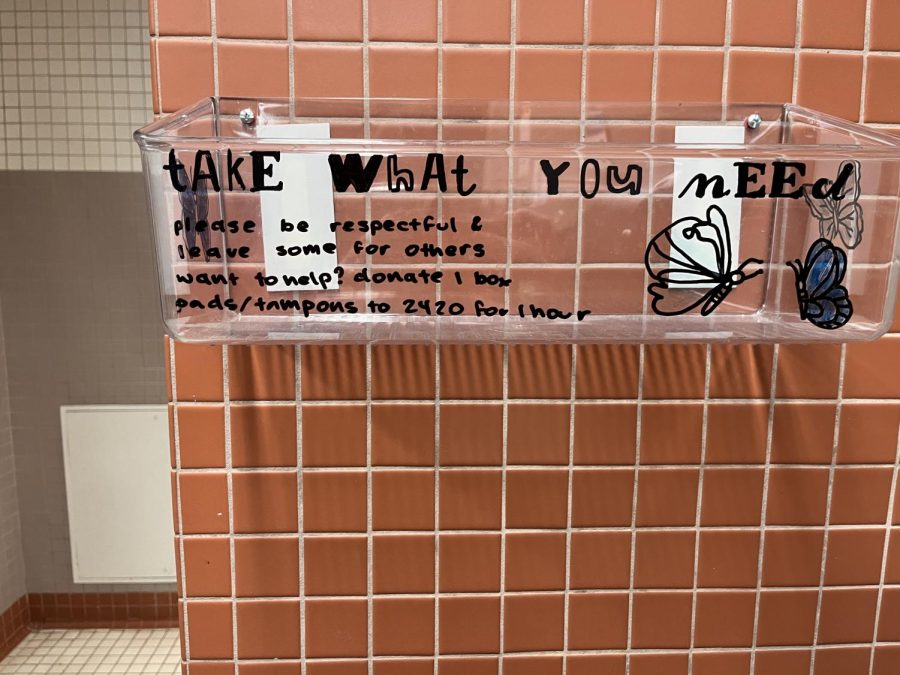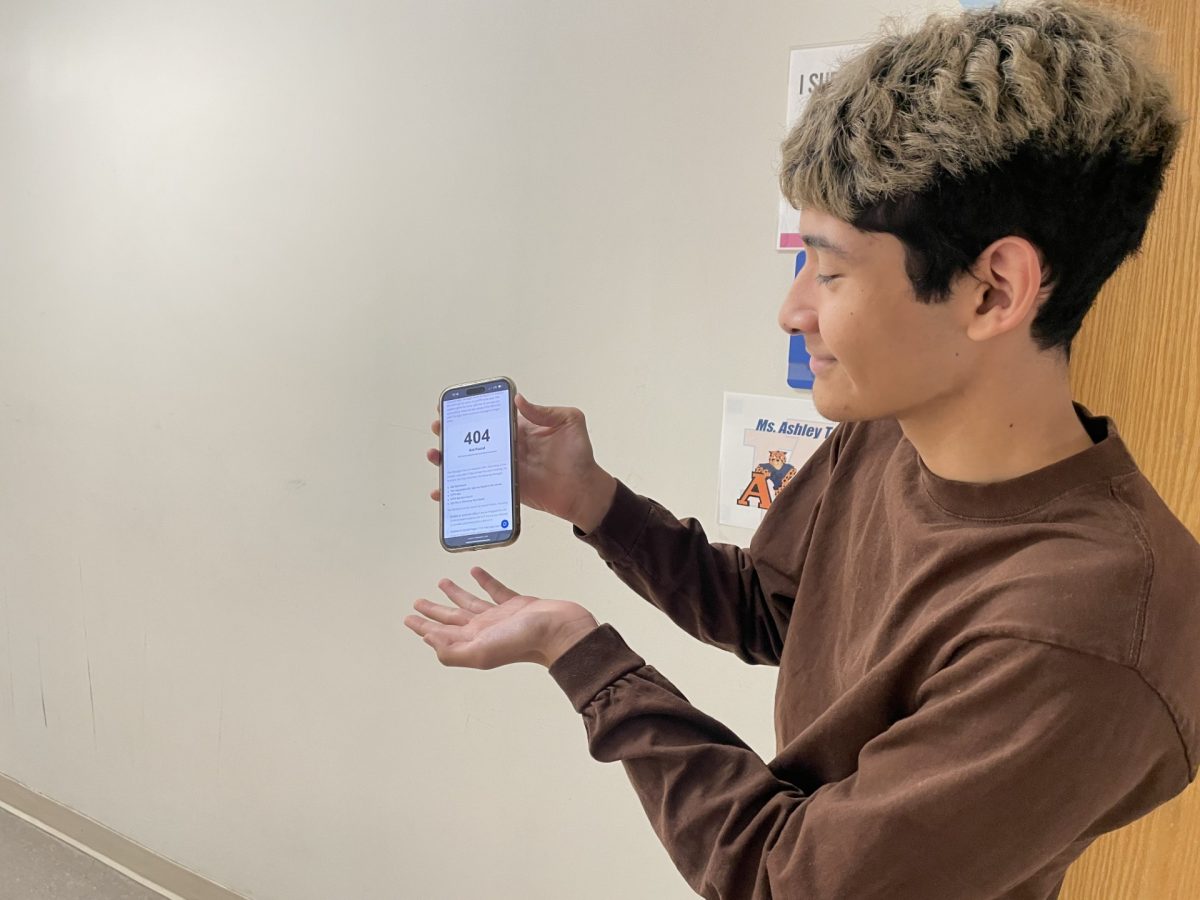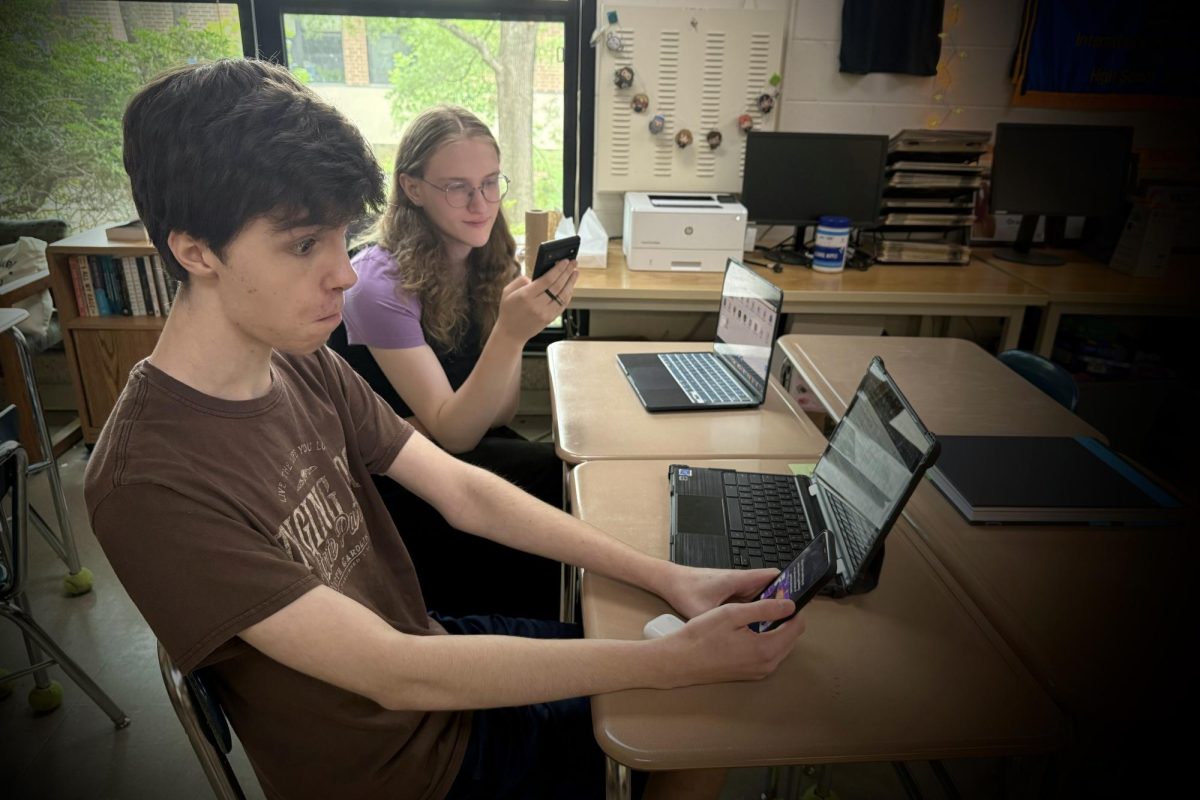While strolling through the halls at the Drive, one could occasionally encounter groups of students loitering in the halls. Many of these loiterers ask their teachers to be excused from class to use the restroom. As the school year ends, a new system is being tested to curb these misuses of bathroom privileges by tracking them digitally.
To address this persistent issue for the upcoming school year, a new bathroom idea may be implemented next year. The goal is to electronically monitor students going to the bathroom to curb unauthorized and excessive bathroom usage among students. This could alleviate the excessive usage, as many of these bathroom trips involve more than just a simple bathroom break. Students are found taking laps, meeting up with friends from other classes, or even recording TikTok videos.
At the beginning of the year, the administration created color-coded bathroom passes in each hallway to crack down on potential wandering in the halls. If the new policy comes into effect, using the restroom will come with much more than taking a pass.
The idea being tested currently has students navigating to the Athens Drive webpage and locating the Alltimely link. They must select the teacher of their current period, and choose either a pass to the bathroom or the main office. Teachers are then notified via email and can either accept or deny the pass. The policy allows for one student to leave class at a time, and once the student is accepted, a seven-minute timer begins. If a student fails to return before the seven minutes, a call home is issued to parents.
 Athens Drive Website homepage. Students log on to Alltimely to request a bathroom pass.
Athens Drive Website homepage. Students log on to Alltimely to request a bathroom pass.
“It’s still being tested and in the works, and if we get positive feedback from the teachers currently testing it, we will make changes accordingly,” said Ryan Piccolo, administrator.
While it is being tested until the end of the year, some staff believe the new policy is a step in the right direction.
“I think that most people are open to trying anything to address the bathroom issues at our school. The new policy doesn’t take up too much instructional time and is easy for students to use,” said Leigh zier, teacher.
Frazier has previously dealt with students who have misused bathroom privileges during her class time.
“Having an electronic record is a good idea to keep track of bathroom usage and could reduce disruptions like unplanned fire drills,” said Frazier.
On the other hand, some expressed worry that the seven-minute timer may not be useful for possible emergencies. Waiting for a classmate to return can be detrimental to those with certain medical needs or who require feminine hygiene products. This could negatively impact student instruction and cause them to worry, instead of focusing on the material being taught in class.
As a result, some students voiced concerns about the new policy.
“I think the new system is unnecessary,” said Karina Perez-Romero, senior.
“Adding a digital step creates an extra task for the teacher and can be disruptive, since some teachers discourage or prohibit students from using technology during class, added Perez-Romero.
Since the idea is still being tested, there could be ways to improve the process to make it more applicable to the student body. One way it could be improved is if teachers could adjust the time accordingly on passes. Another way could be to allow more than one student out to the restroom at a time. Additionally, having to log in through the website makes the process inefficient, so making it so that students only have to log in once per day would be quicker. Hopefully, with some tweaks and adjustments, there will be equitable access across all students with special accommodations or medical needs.
“The only way we will know if this is a good step toward improving the situation is to try it,” said Frazier.







